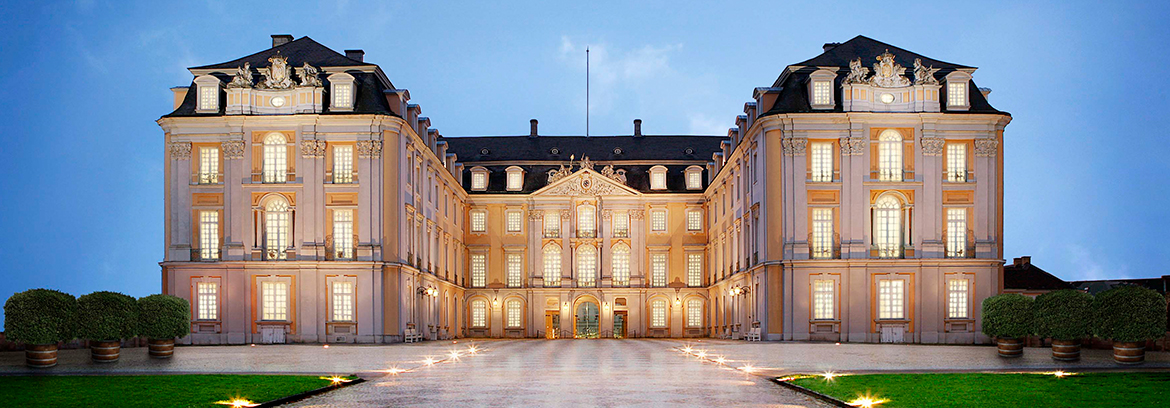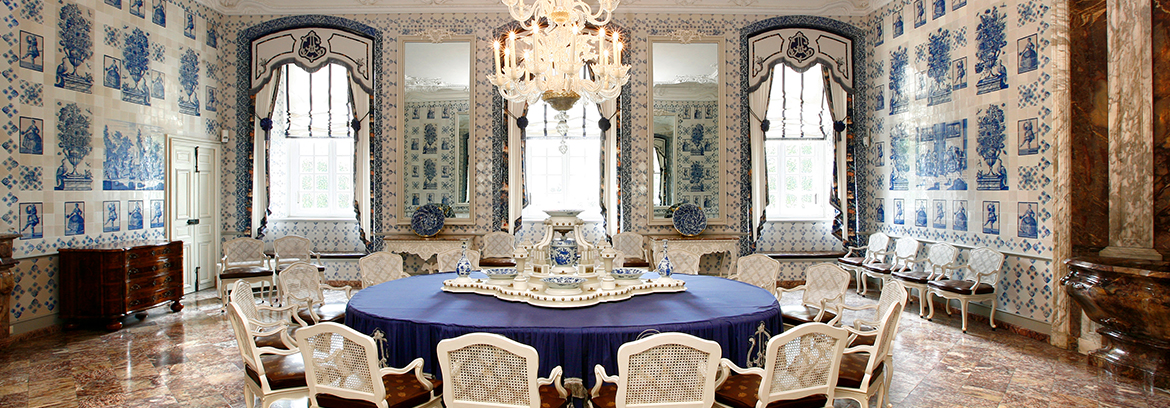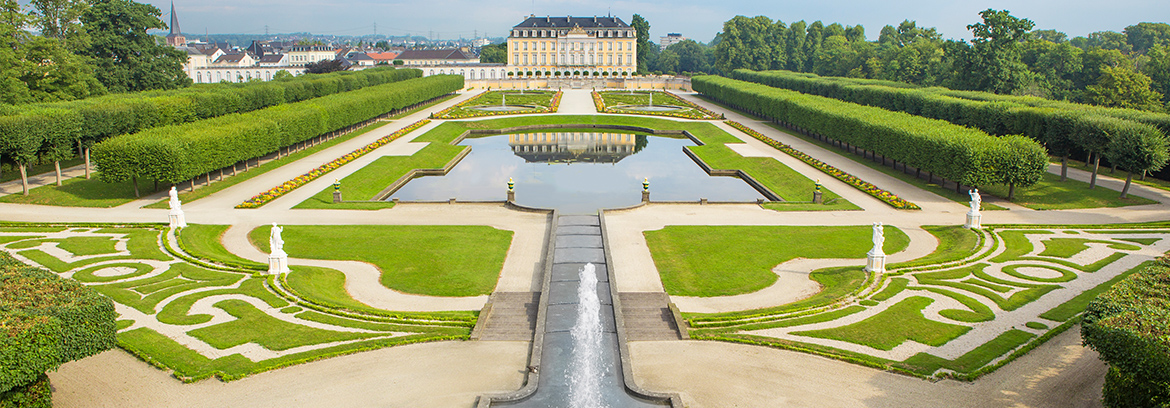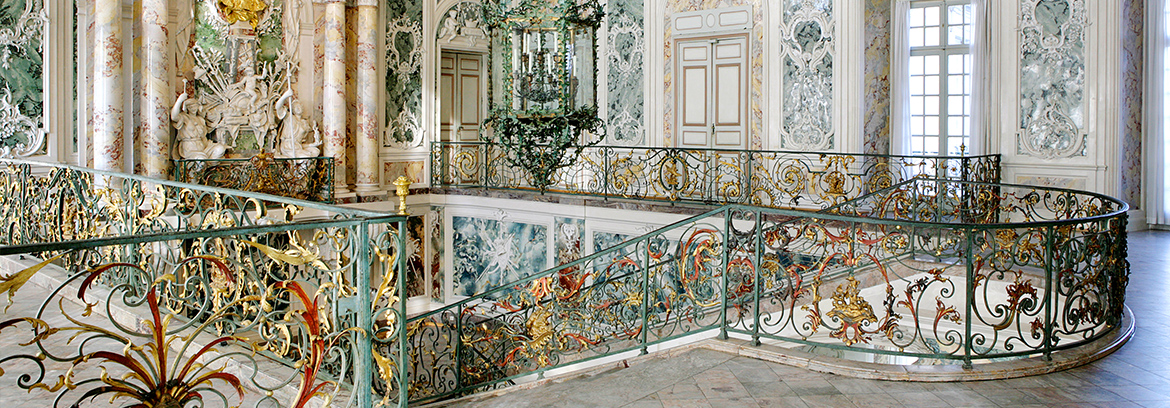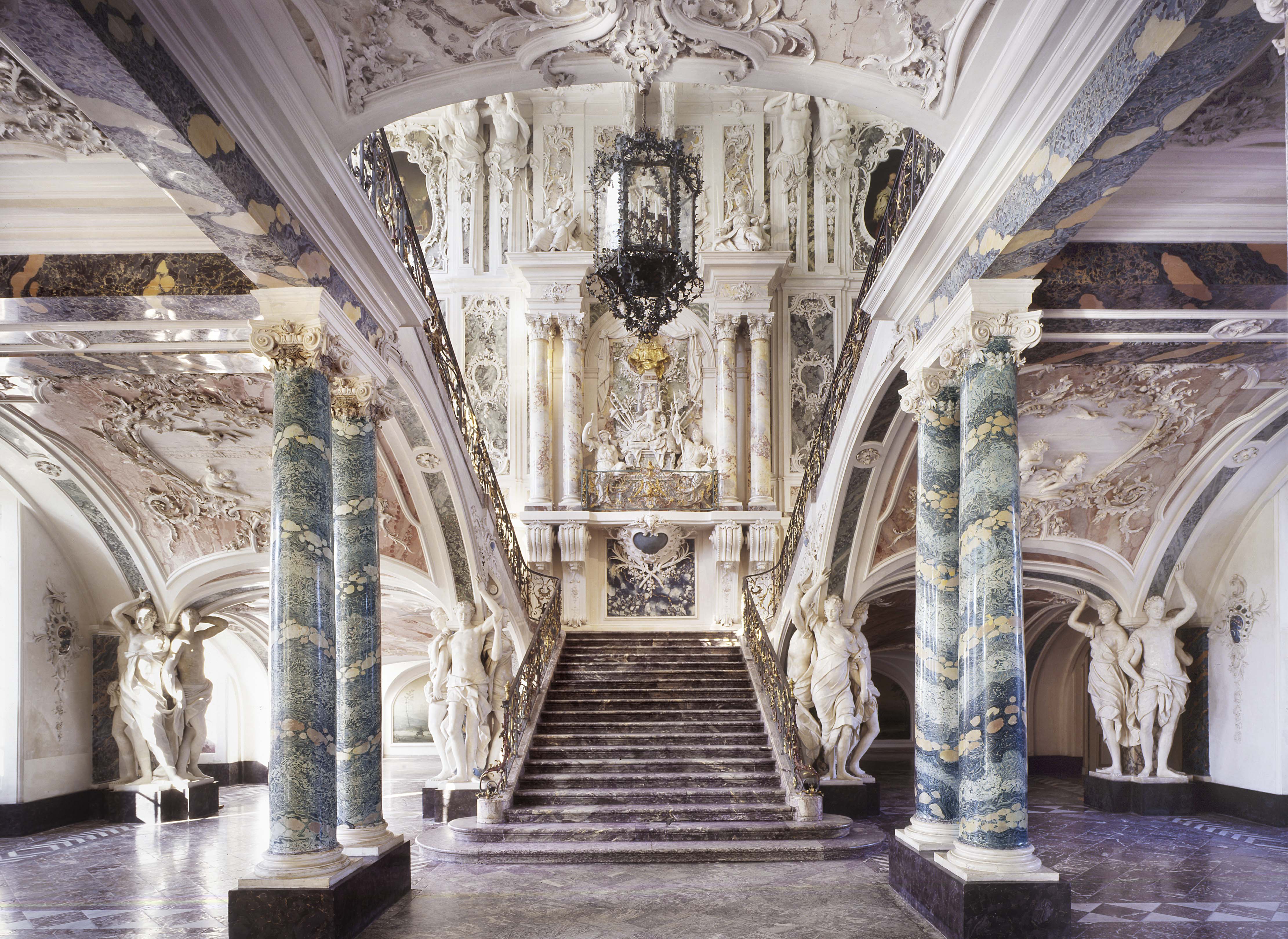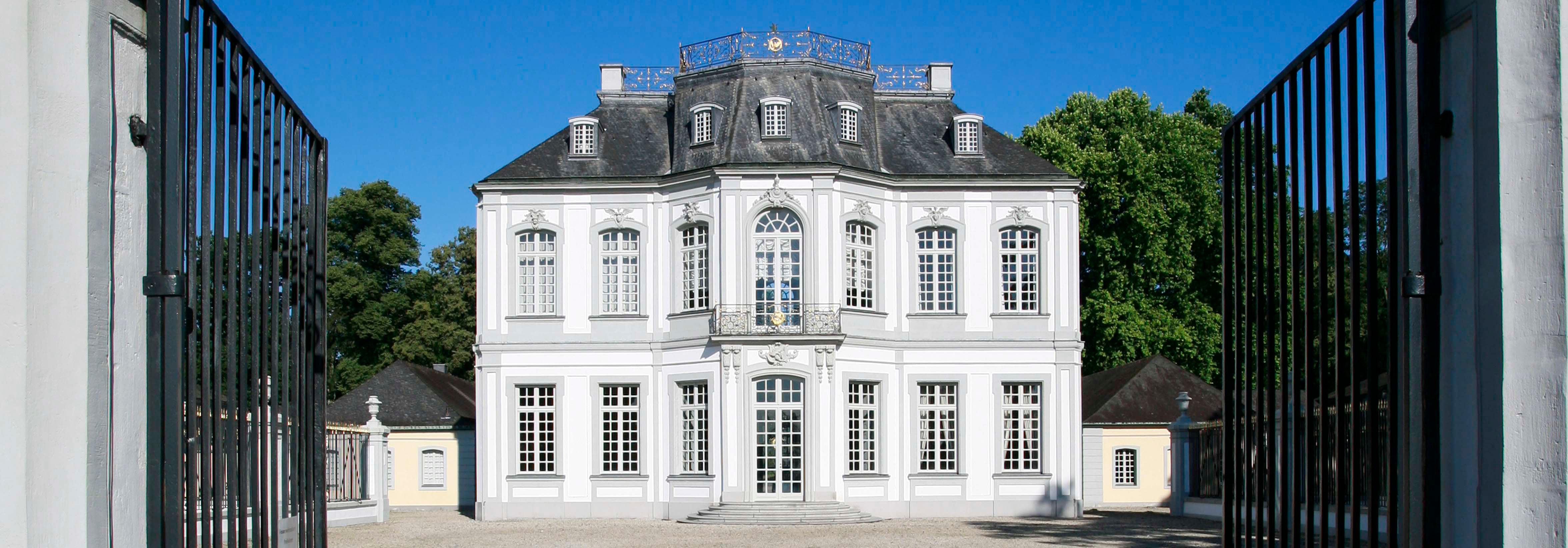The Brühl Palaces
UNESCO World Heritage in North Rhine-Westphalia

Foto: © Schlösser Brühl / Lars Laion
The World Heritage Convention
The United Nations Educational, Scientific and Cultural Organization (UNESCO) seeks to encourage the identification, protection and preservation of cultural and natural heritage around the world considered to be of outstanding value to humanity. This is embodied in an international treaty called the World Heritage Convention, adopted by UNESCO in 1972. By signing the Convention, each country pledges to conserve not only the World Heritage sites situated on its territory, but also to protect them for future generations for the benefit of all humankind.
The United Nations Educational, Scientific and Cultural Organization (UNESCO) seeks to encourage the identification, protection and preservation of cultural and natural heritage around the world considered to be of outstanding value to humanity. This is embodied in an international treaty called the World Heritage Convention, adopted by UNESCO in 1972. By signing the Convention, each country pledges to conserve not only the World Heritage sites situated on its territory, but also to protect them for future generations for the benefit of all humankind.
The World Heritage Emblem
This is further expressed by the World Heritage emblem which has been awarded to the Brühl Palaces in North Rhine-Westphalia back in 1984 as the fifth of an overall of 39 World Heritage Sites in Germany: The central square symbolizes the results of human skill and inspiration, the circle celebrates the gifts of nature. The emblem is round, like the world, a symbol of global protection for the heritage of all mankind.
This is further expressed by the World Heritage emblem which has been awarded to the Brühl Palaces in North Rhine-Westphalia back in 1984 as the fifth of an overall of 39 World Heritage Sites in Germany: The central square symbolizes the results of human skill and inspiration, the circle celebrates the gifts of nature. The emblem is round, like the world, a symbol of global protection for the heritage of all mankind.
The Title
So what makes up cultural heritage in Germany as belonging to UNESCO World Heritage? It is our legacy, a present from the past, what we live today and what we pass on to future generations, irreplaceable sources of life and inspiration whose loss would be devastating for all of humankind.
So what makes up cultural heritage in Germany as belonging to UNESCO World Heritage? It is our legacy, a present from the past, what we live today and what we pass on to future generations, irreplaceable sources of life and inspiration whose loss would be devastating for all of humankind.
The World Heritage List
Only the state responsible for the monument can state a formal application for it to be recognised as UNESCO World Heritage of Humankind. ICOMOS, the International Council on Monuments and Sites, will then be commissioned by UNESCO to evaluate it against a full list of criteria. To be included on the World Heritage List, sites must be of outstanding universal value and meet at least one out of ten selection criteria.
Only the state responsible for the monument can state a formal application for it to be recognised as UNESCO World Heritage of Humankind. ICOMOS, the International Council on Monuments and Sites, will then be commissioned by UNESCO to evaluate it against a full list of criteria. To be included on the World Heritage List, sites must be of outstanding universal value and meet at least one out of ten selection criteria.
The Consequences
Once the status of World Heritage has been granted, its conservation and protection of resources are a constant obligation. In the case of the Brühl Palaces, the Government of North Rhine-Westphalia assumes this duty with a great sense of responsibility. Furthermore, regular checks by the World Heritage Committee and the central UNESCO headquarters in Paris are being held.In case a state does not comply with the rules for the preservation of its World Heritage, it may be put on the „List of World Heritage in Danger“. The list is designed to inform the international community of conditions which threaten the very characteristics for which a property was inscribed on the World Heritage List, and to encourage corrective action. Worst case, it may even be taken off the World Heritage List completely.
Once the status of World Heritage has been granted, its conservation and protection of resources are a constant obligation. In the case of the Brühl Palaces, the Government of North Rhine-Westphalia assumes this duty with a great sense of responsibility. Furthermore, regular checks by the World Heritage Committee and the central UNESCO headquarters in Paris are being held.In case a state does not comply with the rules for the preservation of its World Heritage, it may be put on the „List of World Heritage in Danger“. The list is designed to inform the international community of conditions which threaten the very characteristics for which a property was inscribed on the World Heritage List, and to encourage corrective action. Worst case, it may even be taken off the World Heritage List completely.
